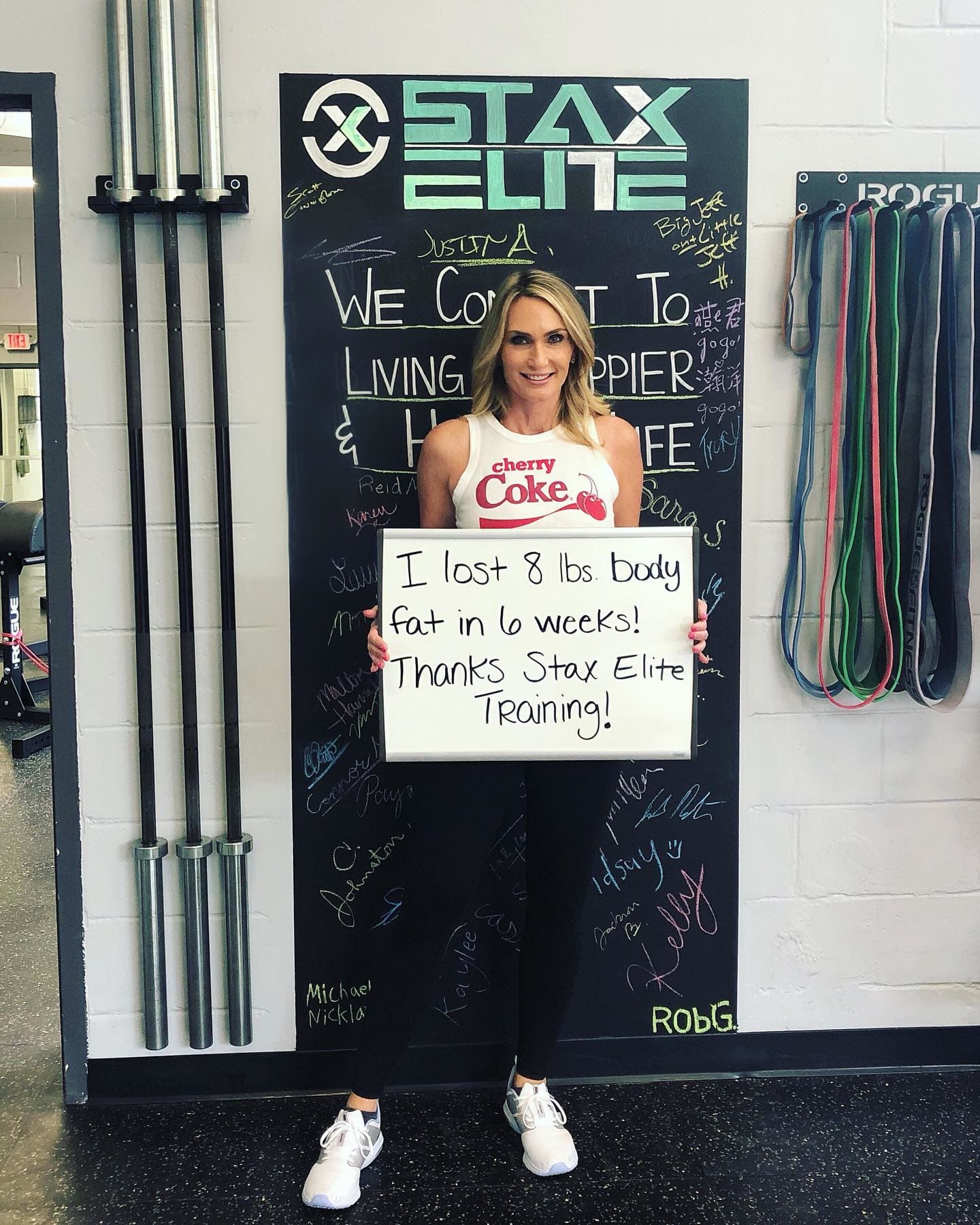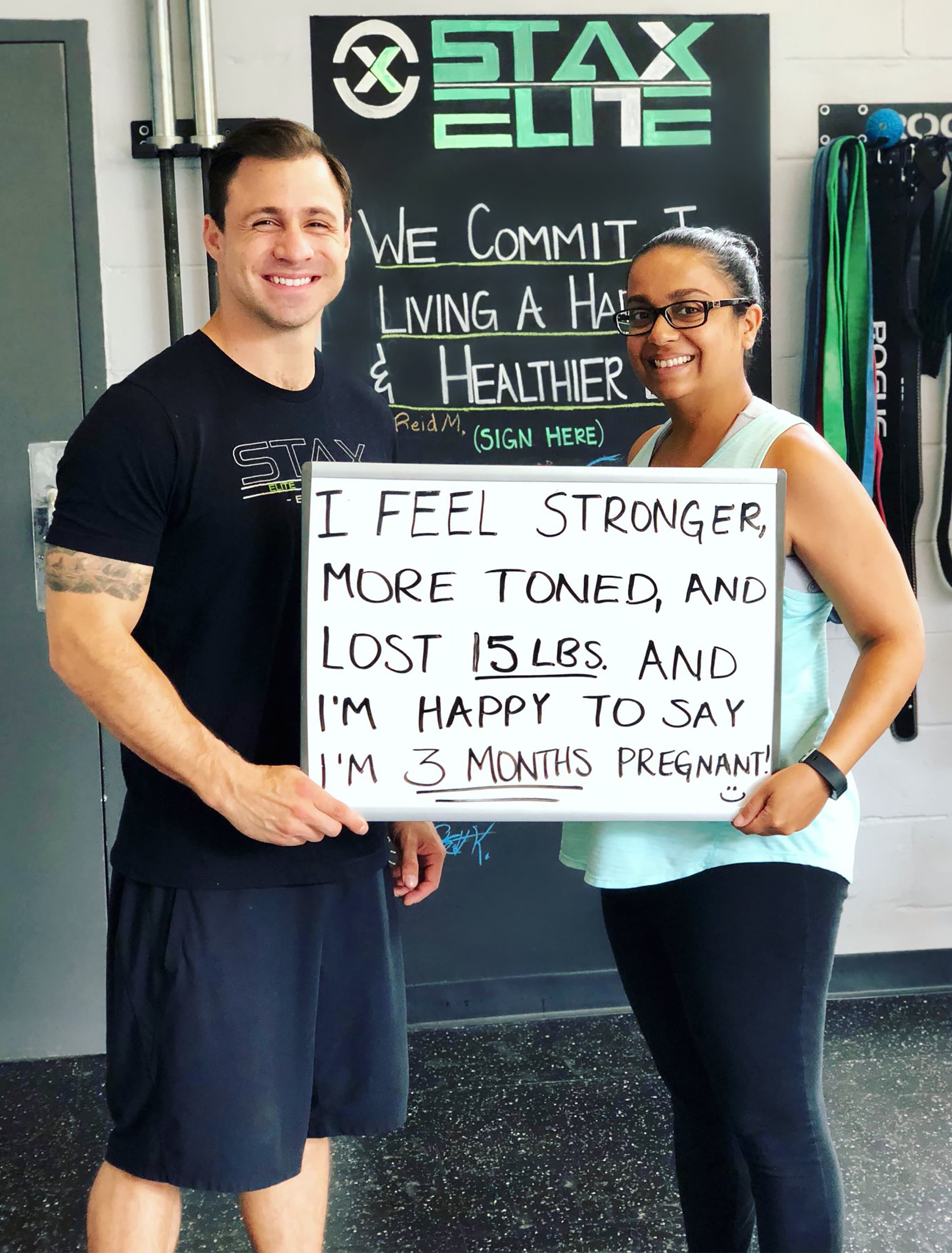
According to Science Daily, the top 4 reasons why dieters don't lose weight are:
1) Underestimating Calories Consumed
2) Overestimating Activity and Calories Burned
3) Poor Timing of Meals
4) Inadequate Sleep
But in reality, it goes far deeper than those reasons. The underlying issue is that the dieting measures most people take are overly restrictive.
Many of us associate dieting with restriction and sacrifice - doing things we don't want to do in order to improve ourselves. That association (and the subsequent actions we take as a result) is typically what causes issues when it comes to losing weight.
But trust me when I say, it's very possible to lose weight and keep it off without making any drastic lifestyle changes.
Mindset
Before we get to the nitty-gritty, we have to talk mindset. If you're not in the right mindset to approach your diet from the right perspective, these dieting tips will be worth very little.
If you've already made this mindset adjustment then I'm sending you a virtual pat on the back and giving you an A+ for step one! The biggest mindset adjustment to make is your desire for instant gratification and quick results. Why, you might ask? Well, because quick results require great sacrifice and are typically unsustainable long term.
Here's an example: 1 pound of fat is equal to about 3,500 calories. Therefore, if you want to burn 3 lbs of fat per week, you would need to cut back your caloric intake by 10,500 calories per week (or 1,400 less calories per day). If your recommended daily intake is 2,000 calories, in theory that means you should consume no more than 400 calories per day... which would be extremely unhealthy and impossible to sustain.
The only reason I mention calories is to emphasize just how burdensome the task of quick weight loss is. I actually don't want you to focus on your calorie consumption at all. Instead, focus your energy on how you look and feel over a period of weeks and months, not days.
Here's the bottom line - separate yourself from the idea of rapid weight loss. I know this might sound very difficult to do, especially if you're feeling frustrated and overwhelmed with your current physical appearance. BUT, getting in the right mindset is easier then you might think! Usually the main reason why most people desire quick weight loss is because they want to get off the diet as soon as possible (because it's overly restrictive). The fatal flaw in dramatic dieting is that you're extremely likely to put all the weight back on when you come off the diet. This kind of dieting is a vicious cycle.
Instead of continuing on that vicious dieting cycle, you should create a diet that results in gradual, sustainable weight loss and requires little to no willpower. A diet that you can maintain for the long term is a diet that allows you to eat all of the things you love.
In terms of dieting, slow and steady wins the race. every. single. time.
Now that we're all in the right mindset, we can get down to the fun stuff. If you practice even just a few of the tips below and make no other changes to your diet, you are likely to see positive results. However, if you follow enough of them, you will observe sustained weight loss.
1. Make Protein the Star of Your Breakfast
A good breakfast is a protein-packed one. Reason being - after you eat protein, you will most likely feel more full than after eating other nutrients, including fiber. One of the theories behind why higher-protein diets work well with weight loss is because protein actually helps you to not feel hungry.
Now think of a protein-rich breakfast meal that you'd love to eat. Guess what? You can eat that meal without feeling guilty because you should feel safe in the knowledge that it can actually assist you in losing weight.
2. Give Up the Liquid Calories
As mentioned earlier, any weight loss is to be celebrated! So, let's say for a moment that you wanted to lose just 1/2lb per week. That's equivalent to around 1,750 calories per week or 250 calories per day. A 500ml bottle of Coca Cola is equal to 210 calories per day. Cutting out that bottle a day would lead to a deficit (over your existing diet) of 1,470 calories per week, equal to approximately 0.42lbs per week. By just cutting out those liquid calories, you can theoretically lose nearly 1/2lb per week without doing anything else.
Even if you really, really enjoy your Coca Cola, you can replace it with Diet Coke. Although it may not taste quite as good as the "real" stuff, you will find that your taste buds adjust over time. There is almost always a good zero-calorie substitute for whatever liquid calories you are currently consuming.
3. Use 'Sensory Overload' to Stop Hunger Pangs
When it comes to hunger pangs, this strategy of sensory overload is fool-proof in the sense that if you are still experiencing hunger pangs when you have completed the process, it's because you are genuinely hungry and should therefore eat something relatively substantial. However, the chances are that you will rarely get to that point.
This process is simple yet effective, just follow these five steps:
1. Drink a tall glass of water
2. Drink a cup of tea or coffee
3. Eat a piece of fruit (like an apple or a banana)
4. Eat a healthy low-calorie snack like celery and (a portion controlled amount of) peanut butter or hummus
5. Drink another tall glass of water
The idea with this process is that you're overloading your senses with a number of stimuli - a variety of tastes, textures, temperatures, and a considerable volume of liquid. Hunger pangs are often psychological (i.e. you crave chocolate because you like the taste) or habitual (i.e. you experience hunger pangs at 3 p.m. because your body is used to eating a late afternoon snack at that time, not necessarily because you need to eat) rather than physical, and over-loading your senses with a variety of food can coax your brain back into a state of perceived satiety.
However, if you follow the five steps above are still hungry after fifteen minutes or so, feel free to eat something more substantial because you're almost definitely hungry in a physiological sense.
This process is also great to use when you're tempted to snack on unhealthy foods. Allow yourself to eat your snack of choice, but only after you have followed the 5 step process. There's always the possibility that once you're done with the process, you may not feel like eating that additional snack anymore. If you do though, by all means, eat your snack.
4. Keep a Food Log
In a study published in 2008 in the American Journal of Preventative Medicine, researchers at the Kaiser Permanente Center for Health Research in Portland, Oregon, found that among 1,700 individuals in a weight-loss program, those who kept daily food journals lost twice as much weight as those who didn't.
The takeaway is this: if you're trying to lose weight, you should be keeping a food log. When you first start your food log don't focus on the calories - just the simple act of writing down the meals and snacks you eat will increase your awareness of what you're eating and aid you in your weight loss efforts.
Food logs could be kept in a text file, spreadsheet, you could take pictures of your meals/snacks throughout the day, or just simply kept via paper and pen. Whatever you find easiest and most efficient will be best. After all, the easier it is the more likely you are to continue doing it.
5. Work for Your Snacks
Banning yourself all together from eating your favorite snacks is most definitely not the path towards long term weight loss success. That being said, there are benefits to making your favorite snacks a little less accessible.
You might be asking, "Will this really help though?". According to science, the answer is yes. Key takeaway here is convenience.
If you're getting a craving for a particular snack, then put yourself in a position where you have to put effort into getting a hold of it. Don't make it as simple as opening your desk drawer or your pantry door - make it so that you have to walk or drive to your local store to get ahold of the snack you're craving.
That little extra effort required may be enough discouragement to convince you not to have the snack all together. Or it might encourage you to choose a healthier alternative that you already have at your office or in your house.
6. Control Your Portions
Calorie counting is often complicated, tedious, and inaccurate. So follow this general rule of thumb for maintaining portion control for an anytime meal (would be different for a post workout meal). Forget the measuring cups and weigh-scales, all you need is your own hand!
For Women: 1 palm of protein dense foods with each meal, 1 fist size of vegetables with each meal, 1 cupped hand of carb dense foods with most meals, and 1 entire thumb of fat dense foods with most meals
For Men: 2 palms of protein dense foods with each meal, 2 fists of vegetables with each meal, 2 cupped handfuls of carb dense foods with most meals, and 2 entire thumbs of fat dense foods with most meals
Of course, just like any other form of nutrition planning - include calorie counting - this serves as a starting point.
You can't know exactly how your body will respond in advance. So stay flexible and adjust your portions based on your hunger, fullness, and other important goals.
7. Size Matters - Adjust your Plates
According to Brian Wansink, head of Cornell's Food and Brand Lab and the author of Mindless Eating, dinner plate sizes have increased 36% since the 1960s. That corresponds with an increase in obesity in the US from 15% in 1960 to 30% in 2004. While correlation doesn't necessarily lead to causation, the relationship between these two variables is thought-provoking.
With that in mind, you've probably read that if you use smaller plates you'll eat less. However, that's not always the case. A plate that is too small can simply convince you to go back for seconds or thirds, making the whole exercise pointless.
So instead of using smaller plates arbitrarily, find your ideal serving size (using your hands to measure) then grab yourself a set of plates that makes your meals look suitably piled up. A mountain of food on a relatively small plate will seem bigger to you than a meal spread across a larger plate.
If you follow the 7 strategies stated above you are sure to steadily lose weight. It's amazing how you can change your diet if you give your body the time it requires to gradually adjust. You can still enjoy all of the foods you love, and you don't have to feel like you're restricting yourself. It is possible for weight loss to be both enjoyable and sustainable!



